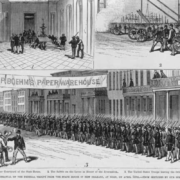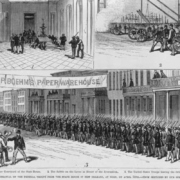The unsung Black women pioneers of house music | Mixmag
Jaguar talks to the Black women who laid the foundations for the house music scene as we know it today
— JAGUAR, MIXMAG
Giving a voice to the marginalised is vital and representation is key in developing a more equal and just world. I try to push this in everything I do: with my BBC Radio 1 shows to the brands I work with and the music I play in my DJ sets.
I also understand the importance of role models. The individuals who inspire a new generation to follow in and transcend their footsteps. But when I look back at dance music history, I am struck by the blocked narratives of our uncredited pioneers, many of who are women of colour, and queer women. Their contributions were and are vital to creating the scene we have today, yet their praises go unsung.
Dance music’s foundations of inclusivity and solidarity resonate with the world now more than ever, but as an industry, it falls short. It’s no secret that the intimate world first built by LGBTQ+ communities and people of colour is now begrudgingly and overwhelmingly white, male and middle class, as are the inner workings of the music industry. As an advocate of DJs and producers who are underserved by our industry, I always do my best to bring my peers upwards and create opportunities for them. The shift in dialogue in 2020 feels optimistic, as we’re making space for everyone to come through the door and be praised for their talent, from rising star Anz, to the formidable SHERELLE, to Honey Dijon’s unknockable top-tier reign.
We know about electronic music’s forefathers and legends: Larry Levan, Frankie Knuckles, Marshall Jefferson, The Belleville Three, Paul Oakenfold, Danny Rampling, among others, because history (of dance music and beyond) is always told from a male perspective. But what about our foremothers? Who are they? What are their stories? And how do they fit into the narrative?
— Credits
Featured Image, Mixmag
Full article @ Mixmag
— Related
Black Lives Matter (BLM) is a decentralized political and social movement advocating for non-violent civil disobedience in protest against incidents of police brutality and all racially motivated violence against black people. The broader movement and its related organizations typically advocate against police violence towards black people, as well as for various other policy changes considered to be related to black liberation.
In July 2013, the movement began with the use of the hashtag #BlackLivesMatter on social media after the acquittal of George Zimmerman in the shooting death of African-American teen Trayvon Martin 17 months earlier, in February 2012. The movement became nationally recognized for street demonstrations following the 2014 deaths of two African Americans: Michael Brown—resulting in protests and unrest in Ferguson, Missouri, a city near St. Louis—and Eric Garner in New York City. Since the Ferguson protests, participants in the movement have demonstrated against the deaths of numerous other African Americans by police actions or while in police custody. In the summer of 2015, Black Lives Matter activists became involved in the 2016 United States presidential election. The originators of the hashtag and call to action, Alicia Garza, Patrisse Cullors, and Opal Tometi, expanded their project into a national network of over 30 local chapters between 2014 and 2016. The overall Black Lives Matter movement is a decentralized network of activists with no formal hierarchy.
Source – Black Lives Matter (Updated: 18 October 2020) Wikipedia. Available at https://en.wikipedia.org/wiki/Black_Lives_Matter, (Accessed: 19 Octobe 2020)
Published at Mon, 19 Oct 2020 15:25:35 +0000


